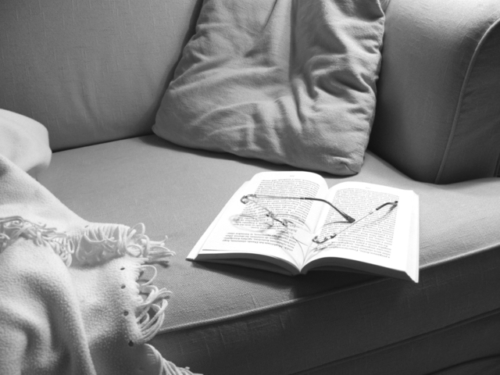I have not been sleeping well this year.
Like many of you, I’m dismayed by the current political climate and the changes in the actual climate. Chronic stress, particularly at work, makes it hard to breathe. Dread fills me whenever I pick up my phone to look at the latest news alerts or when I prepare to start another shift. What terrible event awaits? The death and destruction beat has always been something I’ve been able to handle with long decades of practice, but now, I feel brittle and worn thin.
Add to this the difficulties of any year — financial ups and downs, helping the ones you love deal with illness or displacement, the loss of those you hold dear — and the effort to unwind becomes that much more difficult.
Oh, the things I do to decompress are still enjoyable. The kitties snuggle, the cakes rise, the pages of the books turn and I take great pleasure in them. I love where I live and have thoroughly enjoyed the beauty and wonders of Autumn. My family and friends are golden, and thankfully, for the moment, I still have my health (not counting the migraines I’ve suffered since the mid-’90s and the annoying cough).
Yet the stress does not dissipate; instead it temporarily freezes like ice on Friday morning and melts back into being once the weekend ends. And when I try to sleep, the nightmares come. I toss and turn; I repeatedly wake. My lower back aches from contorting myself into uncomfortable positions, my neck and shoulders exist in a permanent state of tightness no matter how many massages I obtain.
There is no rest.
Still, I press on. As M recently said, this could be the best we ever get. There may be even tougher times ahead and we need to prepare for that. I know he is right, which is why I gird myself for what’s next, try to make meaningful changes, help others whenever I can and, hardest of all, attempt to remain hopeful.
—Photo by Ben Earwicker, Garrison Photography, Boise, Idaho.




